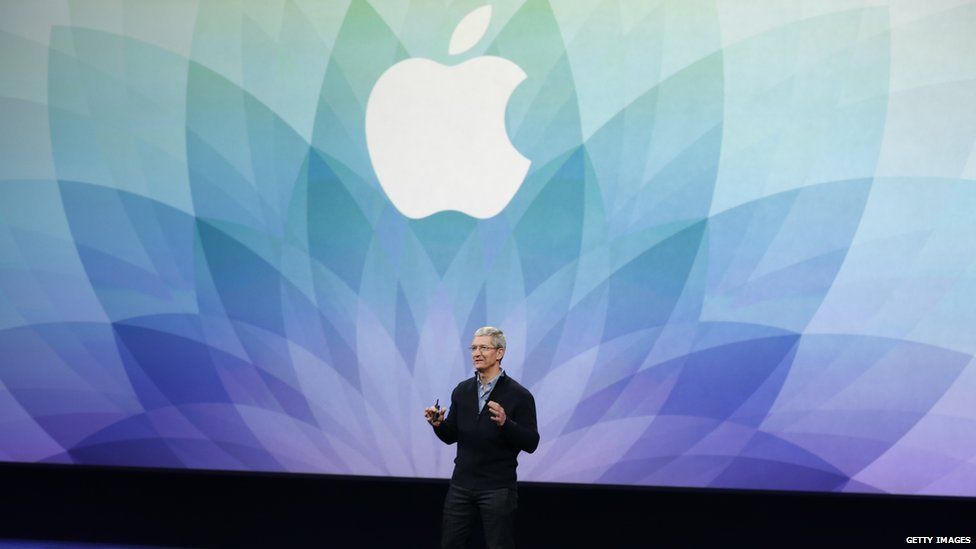Why has Apple broken its vow of silence?
- Published
- comments

It must be one of the most secretive companies on earth. Apple will never talk - in public or off the record - about forthcoming products.
Of course, it has to update the markets every quarter about its financial performance, but even then it can be parsimonious - there were no Apple Watch sales figures in the latest quarterly release. All the more surprising then that the CEO should choose to release some very sensitive information to a TV journalist.
On Monday, with global stock markets in a panic over China and Apple's stock tanking, Tim Cook replied to an email from Jim Cramer, the colourful host of the CNBC programme Mad Money. You can read what he said in this tweet from a CNBC staffer, but the key point was this: "I can tell you that we have continued to experience strong growth for our business in China through July and August."
The market, which had sent Apple shares down 10% at the beginning of trading, responded swiftly, with the company recovering $78bn of its lost market value.
Now, there are strict rules in the UK and the US about the release of sensitive financial information. Everyone is supposed to get that data at the same time, so giving something as important as this to a TV presenter seems, to put it mildly, unconventional.
The US regulator, the Securities and Exchange Commission, has a rule on fair disclosure which says that when "material non-public information" is released to individuals such as stock analysts, "the issuer must make public disclosure of that information". Now I suppose that, as the email did not contain any numbers, Apple could argue that the information was not material, and that Jim Cramer is not a stock analyst.
But the impact on Apple's shares says otherwise. Investors were very worried about whether Apple's China growth was continuing and they were reassured. Perhaps Tim Cook has decided that CNBC is just a more efficient way of getting information to the market than an SEC filing.
What is also strange about Tim Cook's behaviour is that he was at all worried about the gyrations in Apple's share price. Throughout the period in late 2012 and the first half of 2013, when the market fell out of love with the firm and its shares fell around 40% from their peak, Apple executives showed remarkable sang froid.
Tim Cook and his team knew that innovation had not dried up, and that new products were in the pipeline, and they seemed confident that the investors would eventually realise the error of their ways. Which eventually they did, sending the shares to new record highs.
Yes, Apple's market value is down around a quarter from its May peak, but surely Apple can just wait for the next quarterly results - and presumably a new iPhone in September - and everything will be fine again? This is a company that has delighted in forging its own path, deaf to the day-to-day hubbub of the markets. Perhaps the fact that it now seems to be listening to that noise is what should really worry investors.